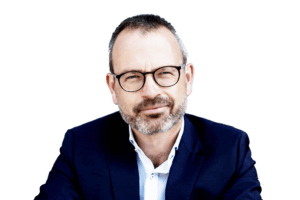Opinion
The Valley of Life: Let´s get back together!
Søren Bregenholt
This article is more than 4 years old.

Back together again after a long break (photo: Pixabay)
Let´s get back together!’ might sound like the beginning of a love song from the ‘90s, but after more than 15 months with very different strategies for the handling of the COVID-19 pandemic – including partly closed borders and restrictions on travelling as well as gathering – it is also a call for key decision-makers in Denmark and Sweden to reconnect and reboot the region.
Unrealised potential
The recently published analysis ‘Life Science across the Øresund’ presents new facts and figures not only documenting Danish-Swedish life science collaboration, but also highlighting unrealised potential and obstacles hindering their realisation. The conclusion is that from a life science perspective we could do so much more to work together and boost the region
Despite the restrictions and various obstacles, more than 20 Danish CEOs/managing directors are now working in large, medium-sized and small life science companies in Scandia – and I happen to be one of them!
We are a small part of a growing number of almost 1,000 commuters working in the life science industry either going from Sweden to Denmark, more than 800, or the other way – a little less than 200. When talking about the need for qualified life science professionals in Denmark, our Swedish neighbours are definitely part of the solution and should be recognised as such.
Signs are there
Interviews with life science stakeholders and key opinion leaders in this analysis clearly reflect that regional collaborations are easy, and that most barriers are almost always structural. They argue for more transborder research funds, fewer ‘tax headaches’ and scrutiny of administrative costs resulting from inflexible national regulations and administrative practices.
From Novo Nordisk Foundation’s establishment of the BioInnovation Institute in Copenhagen in 2017, an important event for seed-funding in the region, to the granting of just under 47 million euros by the EU program Interreg Öresund-Kattegat-Skagerrak to joint Danish-Swedish projects in the life science sector, it is hard to deny the potential of the life science sector.
Now is the time for an approach and outreach to our Swedish neighbours that transcends individual industries and is anchored within a greater and stronger framework of cultural, infrastructural, political and industrial collaboration.
Back to the ‘90s
The optimism of the 1990s included not only the legendary Danish 1992 UEFA European Championship win at Ullevi in Gothenburg, Sweden, but also a massive support for a strong and integrated Øresund region.
Both Denmark and Sweden exceeded expectations at this year’s Euros. In Copenhagen it was like a flashback to the 90s, with the renowned 1992-spirit bubbling over in both countries. I would like to see the championship followed by some of the same 90s-style Danish-Swedish Øresund enthusiasm. We cannot go back to the 90s, but we could get back together again!

About
Søren Bregenholt
As the chairman of the Medicon Valley Alliance – the gold-labelled Danish-Swedish life science cluster organisation – Søren will address current trends and challenges in the sector.










































